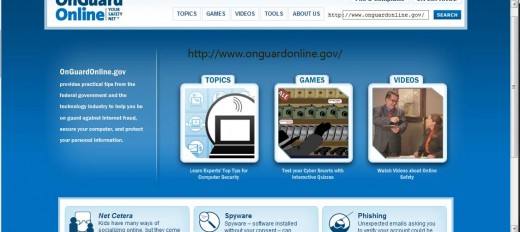Internet Safety: Difference Between http and https
Have you seen this email being floated around the net?
If you haven't, then
read on. It could save you a lot of headaches in the future.
It basically states that you need to be aware of where you are using your credit card online.
If the web address or url starts with http:// (hyper text transfer protocol) instead of https; //, then don't enter your personal information (like a debit, credit card or bank account info, social security numbers, PINs, or other sensitive information).
The "s" in https:// stand for "SECURE". If the web address only has the http:// vs. https:// don't trust it. That address is not secured with encrypted layers that keep your information safe.
Wise Geek says, "there are two common types of encryption layers: Transport Layer Security (TLS) and Secure Sockets Layer (SSL), both of which encode the data records being exchanged.
Ok, but just because the website says its secure or even boasts of the title;
https:// blah.blah.blah.com, .net, or .org
doesn't mean it's always safe.
Please make sure to check if it is a reputable company before giving them any sensitive information. For more about https:// is it really safe? read another hub by LifeBuilder here .

Wise geek has a plethora of useful information, whether for the beginner or advanced user, you'll always find helpful tidbits of internet saavy salvation.
See wisegeeks' description of the difference between http and https. Warning: their information is MUCH more detailed than mine. I've basically put it in "layman's terms", for people like me who don't want to read through a long list of super detailed descriptions when I'm only looking for a speedy answer. http://www.wisegeek.com/what-is-the-difference-between-http-and-https.htm
OnGuardOnline.gov is a great site for learning basic internet safety, great tips on internet fraud, securing your computer and your information, about phishing and spyware. An all around good safety site. http://www.onguardonline.gov/
Microsoft has an ONLINE SAFETY site that has dozens of helpful tips:
PROTECT YOURSELF while surfing the internet at all times.
Create strong passwords, handle suspicious e-mail messages, download files more safely, and use anti-phishing technologies to keep yourself safer online.
If you have teenagers that like to use the computer (what teen doesn't, in fact, most teens probably know more than you do about using technology, but that's another hub altogether), check out; http://kidshealth.org/teen/safety/safebasics/internet_safety.html.
Check some of these out, you might be surprised, or You may just learn something that could save your sanity, your wallet or fulfill your money making internet dreams.









